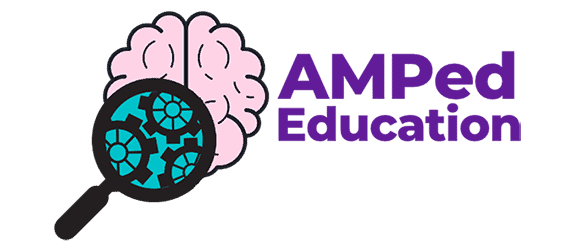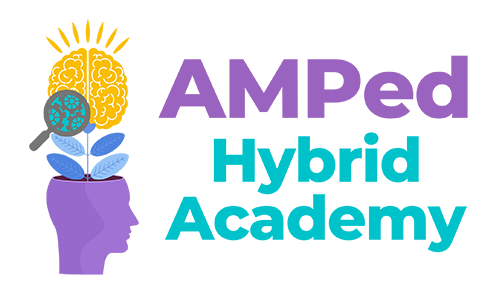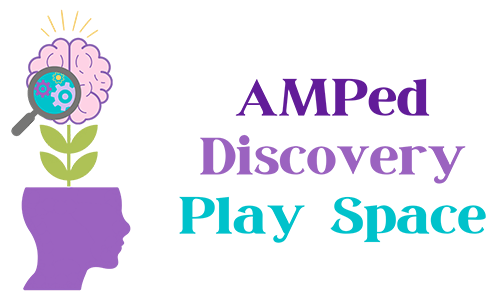Microschool Offers New Avenue for Education
 Published in The Oakland Press – Apr. 20, 2024
Published in The Oakland Press – Apr. 20, 2024
Article by Matthew Fahr
A new option is available in southeast Michigan to parents unhappy with their children’s education in public or private schools but don’t have the time or credentials to homeschool.
Microschools blend in-person and online learning. The first one in Michigan opened last fall in Farmington Hills.
Anne Marie Palazzolo opened the AMPed Hybrid Academy near Middlebelt and 12 Mile Road in Farmington Hills in September 2023 with just four students.
It is a K-8th grade private school that uses project-based learning and personalized education plans to customize each student’s learning experience through combined small, mixed-age class sizes of 12 students or less.
Students spend two to three days a week at the academy building and the rest at home in online classes. It is not affiliated with any churches or religion.
Palazzolo is a special education teacher and has worked as an educational advocate and consultant. She is the principal and founder of the academy and began tutoring students at a local library then took her business online during the COVID pandemic.
“Here, we are a real private school, just very tiny,” said Palazzolo. “We provide the entire education as opposed to just electives or a co-op.”
The academy now has 25 students and Palazzolo anticipates 60 students in the fall; capacity is 72. Palazzolo is looking to open a second school and expand to grades 9-12 in the future.
The three full-time educators on staff have teaching degrees and the academy adheres to state educational requirements and benchmarks. Students transferring from the academy would transition to the appropriate grade level at another school, whether public or private.
“I started this because I wanted to be able to teach how I wanted to teach and the way I think kids can learn the best,” said Palazzolo. “With something like this there is much more collaboration and we want all of our students of any age to be able to work together rather than just checking individual goals.”
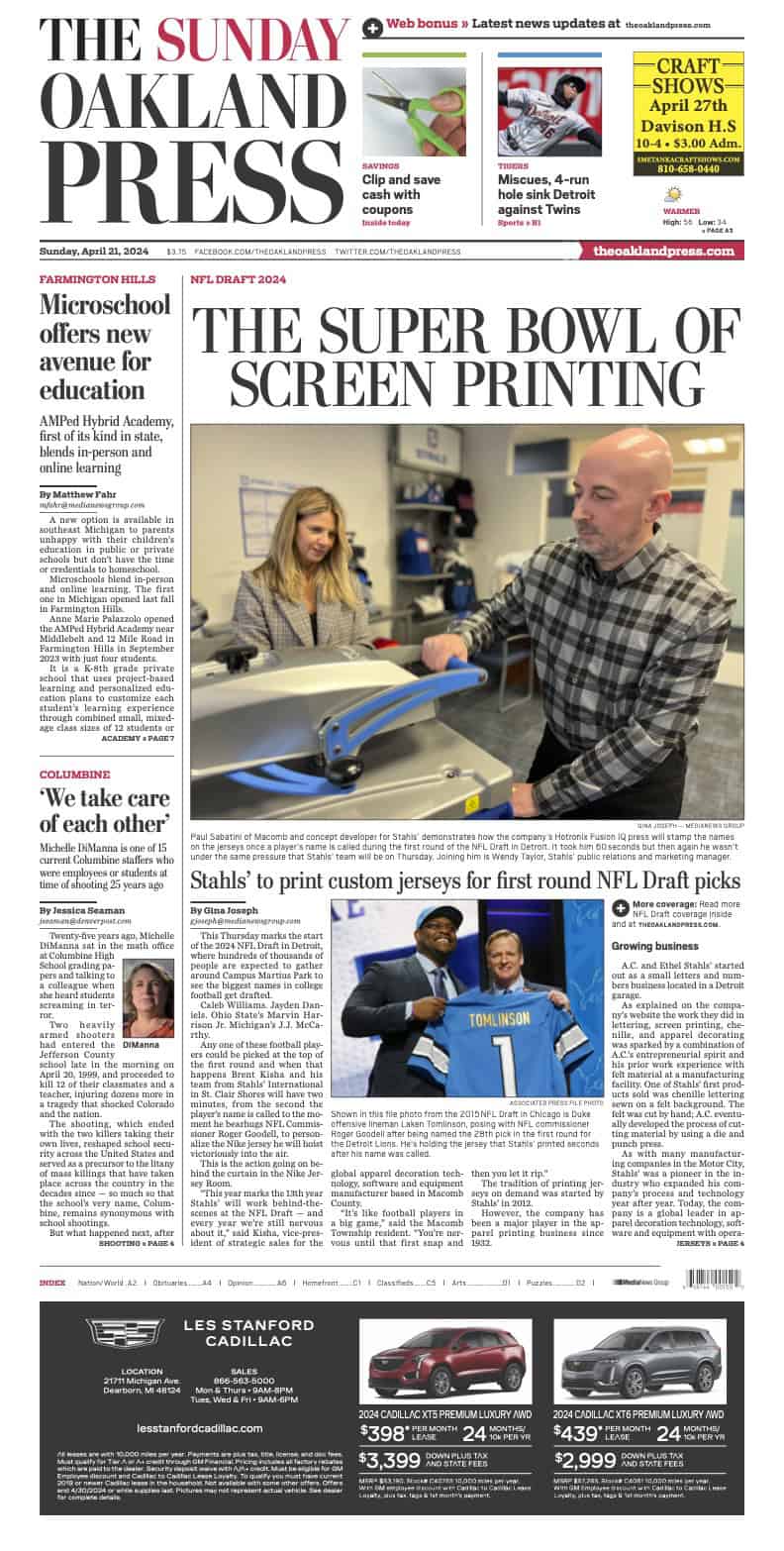
What is a microschool?
According to Don Soifer, co-founder of the National Microschooling Center in Las Vegas, there are around 1.5 million students nationwide in roughly 95,000 microschools.
Soifer said there is not a true definition of what a microschool is and guidelines and regulations vary by state.
“From a research or legal point of view, there is no definition of a microschool,” said Soifer. “Some states observe homeschool rules and others observe charter school rules.”
The academy has submitted their application as an official private school and adheres to Michigan private school guidelines.
“The term microschool is very broad. It looks very different in different parts of the country,” said Palazzolo. “We follow the rules that they (the state) set forth for a private school.”
Soifer said microschools began gaining traction during the pandemic, but have remained a sustainable option for parents.
“It is in a rapid growth phase in the United States,” said Soifer, who founded the center in 2022. “The popularity is really taking off. Where our office is in Las Vegas, we have 25 microschools within about 10 miles.”
Annual tuition for the academy ranges from $9,500 to $11,500, plus a $1,200 annual supply fee.
According to Private School Review, the average 2024 private school tuition in Michigan is $8,096 per year. The average tuition for private elementary schools is $6,853 per year and for private high schools is $12,387 per year.
For 2024, there are 154 private schools serving 29,531 students in Oakland County, or about 15% of all K-12 students, and 53% are religiously affiliated. The state average private school attendance is 9%.
Future for microschools
Opinions from educators are mixed on whether microschools will grow into a viable alternative for parents in the future.
“Unfortunately, the movement faces many challenges. Antiquated policies block their expansion. Logistical hurdles stymie newcomers. And a commitment to dubious education theories threatens their success,” Daniel Buck wrote in an article for the Fordham Institute in Washington, D.C. in October 2023 after attending a conference on microschools.
“Microschooling could revolutionize the nation’s K–12 education system, providing a wide array of high-quality, affordable learning options that can meet the individual learning needs of each child,” Jason Bedrick and Matthew Ladner wrote in a 2020 report for the Heritage Foundation Center for Educational Policy in Washington, D.C. “This form of education should not be the exclusive privilege of the few but an option for all families.”
Trinity Metcalf, a teacher at the academy, said the setting at the academy has its advantages.
“I feel like homeschooling kind of limits you and we have more resources here,” she said. “I feel like I can do a lot more as a teacher and I can go wherever the kids take you. It is something that is harder and easier at the same time.”
Soifer, of the National Microschooling Center, sees the Farmington Hills academy as a solid example of what a microschool can provide.
“They have an area of expertise with children with special needs that is obviously sought after,” he said. “And it sounds like they are good at what they do and provide a necessary option to parents that they cannot find anywhere else.”
Palazzolo is convinced the model she has created at AMPed, a name created by using her initials, is a sustainable alternative for parents who cannot find what their child needs in public, private, charter or Montessori schools.
“We have a community feeling where everyone can contribute, which usually isn’t the case for kids in a more traditional setting,” she said. “I’ve been teaching for a long time and I can’t think of any kids who would hate something like this.”
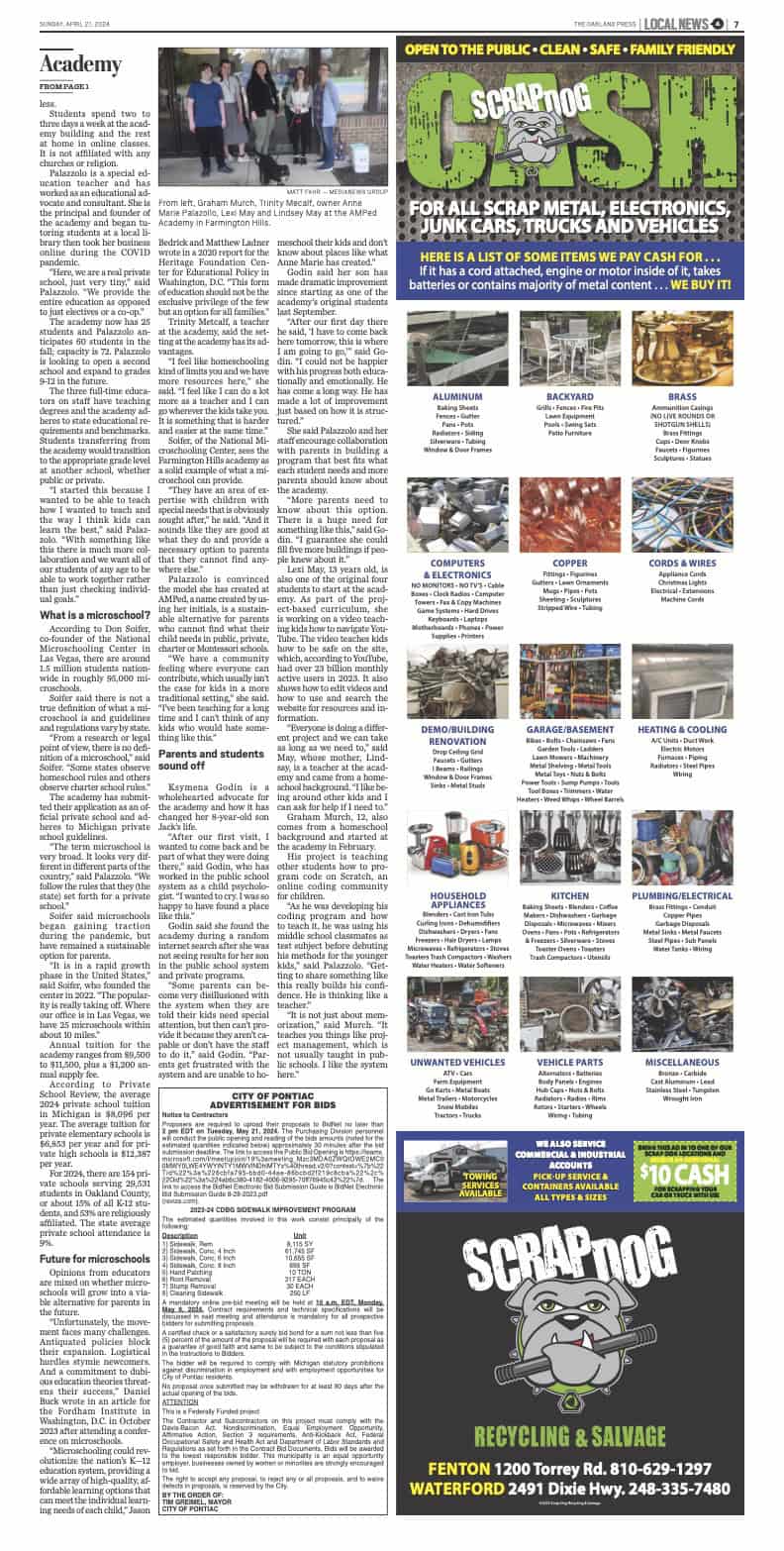
Parents and students sound off
Ksymena Godin is a wholehearted advocate for the academy and how it has changed her 8-year-old son Jack’s life.
“After our first visit, I wanted to come back and be part of what they were doing there,” said Godin, who has worked in the public school system as a child psychologist. “I wanted to cry. I was so happy to have found a place like this.”
Godin said she found the academy during a random internet search after she was not seeing results for her son in the public school system and private programs.
“Some parents can become very disillusioned with the system when they are told their kids need special attention, but then can’t provide it because they aren’t capable or don’t have the staff to do it,” said Godin. “Parents get frustrated with the system and are unable to homeschool their kids and don’t know about places like what Anne Marie has created.”
Godin said her son has made dramatic improvement since starting as one of the academy’s original students last September.
“After our first day there he said, ‘I have to come back here tomorrow, this is where I am going to go,’” said Godin. “I could not be happier with his progress both educationally and emotionally. He has come a long way. He has made a lot of improvement just based on how it is structured.”
She said Palazzolo and her staff encourage collaboration with parents in building a program that best fits what each student needs and more parents should know about the academy.
“More parents need to know about this option. There is a huge need for something like this,” said Godin. “I guarantee she could fill five more buildings if people knew about it.”
Lexi May, 13 years old, is also one of the original four students to start at the academy. As part of the project-based curriculum, she is working on a video teaching kids how to navigate YouTube. The video teaches kids how to be safe on the site, which, according to YouTube, had over 23 billion monthly active users in 2023. It also shows how to edit videos and how to use and search the website for resources and information.
“Everyone is doing a different project and we can take as long as we need to,” said May, whose mother, Lindsay, is a teacher at the academy and came from a homeschool background. “I like being around other kids and I can ask for help if I need to.”
Graham Murch, 12, also comes from a homeschool background and started at the academy in February.
His project is teaching other students how to program code on Scratch, an online coding community for children.
“As he was developing his coding program and how to teach it, he was using his middle school classmates as test subject before debuting his methods for the younger kids,” said Palazzolo. “Getting to share something like this really builds his confidence. He is thinking like a teacher.”
“It is not just about memorization,” said Murch. “It teaches you things like project management, which is not usually taught in public schools. I like the system here.”
